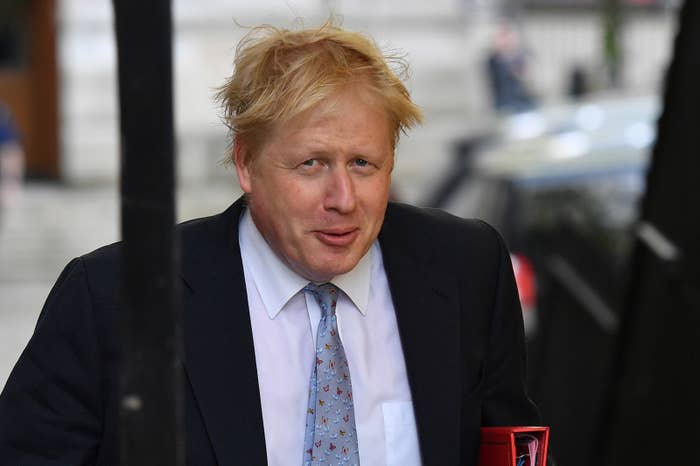
The customs arrangement being pushed by Boris Johnson and other Tory Brexiteers would leave the British economy worse off by 1.8% in the long run and negatively impact around 145,000 UK companies, cabinet ministers have been warned.
BuzzFeed News has learned that this stark assessment was presented to members of Theresa May's Brexit "war cabinet" at a crunch meeting last week when they debated the future of the UK's customs arrangements with the European Union.
The assessment was prepared by the Treasury. Its existence was confirmed by two sources, one of whom said that only about 40 people had seen the document.
The cabinet battle over future customs arrangements with the European Union exploded into public view again this week when foreign secretary Boris Johnson told the Daily Mail that the prime minister's preferred option of a "customs partnership" was "crazy". On Wednesday, May struggled at prime minister's questions as Jeremy Corbyn focused on cabinet divisions over the issue.
The partnership option would keep the UK relatively closely aligned to the EU's customs regime, while Johnson and Brexiteers prefer a more detached arrangement that would rely on technology to minimise border checks.
Sharply divided, the Brexit sub-committee has been leaning toward the latter, known as "maximium facilitation" or "max fac".
However, ministers were told that in addition to the hit to GDP, that option would negatively impact 145,000 companies that rely on trading with the EU, imposing new barriers to selling products on the continent.
In January, BuzzFeed News revealed that the government's own tightly-guarded Brexit analysis showed that the UK would be worse off under all scenarios modelled. The latest assessment presented to the cabinet committee last week adds to the pessimistic internal view of the economic consequences of the options being considered.
The potential for causing friction for so many businesses is part of the reason May has been reluctant to abandon her preferred future customs partnership despite a sustained backlash from influential Leavers in her party, BuzzFeed News understands.
Both options being considered have, in their current formulation, been rejected by the EU. And the “maximum facilitation” arrangement wouldn’t avoid a hard border in Northern Ireland, a negotiating goal that both the UK and the EU have signed up to.
An EU official told BuzzFeed News: "It's interesting to see so much political capital spent on this."
May’s preferred choice, the customs partnership, has also been dismissed by hardline Eurosceptics as impractical. They also say it would leave the UK beholden to the EU and unable to pursue its own independent trade policy. Jacob Rees-Mogg, leader of the influential alliance of Tory backbenchers known as the European Research Group, called the plan “cretinous” and silly.
Despite the pushback, the partnership option remains on the table. May is hoping to have a final decision made by the time of the next meeting of the European Council of EU leaders in June.
Three more rounds of negotiations are scheduled before the June summit, but EU officials told BuzzFeed News that talks had stalled in recent weeks because of the current customs impasse. Officials are unable to make progress on technical details without political input from London, they said.
A spokesman for 10 Downing St said they do not comment on cabinet discussions.

